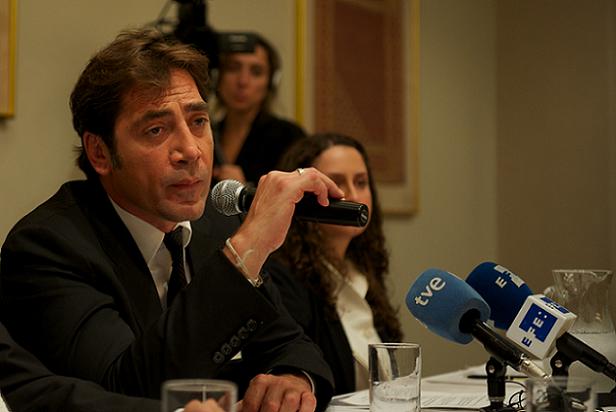Javier Bardem and the world’s last colonies Special Report
New in Ceasefire, Special Reports - Posted on Saturday, October 15, 2011 14:17 - 0 Comments
 In 1960 the UN adopted resolution 1514 stating that all people have a right to self-determination and that colonialism should be brought to a speedy and unconditional end. Over half a century later it may come as a surprise for readers to learn that there are still sixteen territories around the world that have yet to achieve decolonization.
In 1960 the UN adopted resolution 1514 stating that all people have a right to self-determination and that colonialism should be brought to a speedy and unconditional end. Over half a century later it may come as a surprise for readers to learn that there are still sixteen territories around the world that have yet to achieve decolonization.
Known as “non-self-governing territories,” the list of places still ruled by a foreign power contains some familiar names: Gibraltar and Falkland Islands (Malvinas) to name just two. But while some of these territories like the tiny Pacific Island of Tokelau are dependencies that could be said to have rejected independence and democratically chosen to maintain their territorial status, others are more controversial.
Each year in New York, the UN’s Fourth Committee on Decolonization convenes to hear petitions from people speaking on behalf of these non-self-governing territories. The three-day meeting which took place last week is normally a rather dry affair with petitioners and lobbyists ploughing well-furrowed ground before a rather disinterested panel of UN officials. But this year things were livened up considerably by the arrival of Oscar-winning actor Javier Bardem who had come to petition on the issue of Western Sahara.
His arrival caused a ripple of excitement across the auditorium as even senior advisers and diplomats pulled out their camera phones but Bardem was not distracted. Describing Morocco’s 36-year occupation of Western Sahara as a ‘grave injustice” he called for a referendum of self-determination and an end to human rights abuses in the former Spanish colony.
As with previous occasions, this year’s meeting was dominated by the issue of Western Sahara. On the first day a handful of petitioners raised questions on Gibraltar, New Caledonia, Guam, Turks and Caicos, and the United States Virgin Islands but the rest of the time was set aside for petitioners to argue both sides of the Western Sahara debate.
Juan Markuartu, the former President of the Basque Country caused a bit of a stir when he veered from his expression of support for self-determination for the Saharawi people to expressing his hope that the Basque nation might one day formally sit before the Committee to request their inclusion in the United Nations.
On Monday the Committee adopted a resolution reaffirming the right of the Saharawi people to self-determination and independence. The resolution asserted support for negotiations in order to achieve “a just, lasting and mutually acceptable solution to provide the self-determination of the people of Western Sahara.”
These are fine words but as petitioner photographer Robert Griffin put it, the time had come for action. “I spend much more time than I would like telling my four-year old daughter to clear up her bedroom and she always promises me that she will” said Griffin. “These assurances mean nothing until she actually does the tidying. Surely twenty years after the united nations ceasefire agreement time has come to tidy the room?”
[Photo credits: Robert Griffin robertgrifinphotography.com]



Leave a Reply